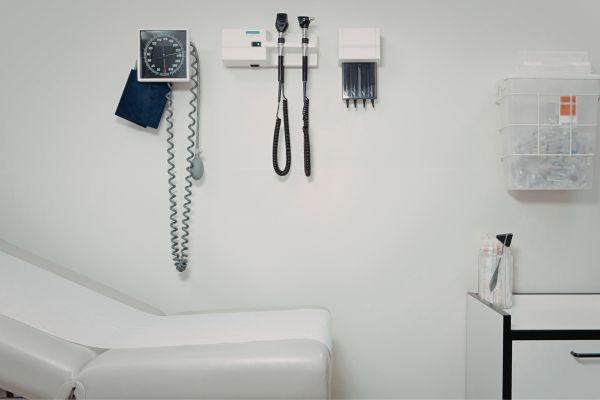If you’ve ever filed a workers’ compensation claim, you’ve probably heard the term “Independent Medical Exam,” or IME. It sounds official, maybe even intimidating. And honestly, it kind of is. The independent medical exam workers’ comp process is one of those things that can either help your claim—or throw a wrench in it—depending on how you handle it. So, let’s break this down in plain English and talk about what’s really going on behind that doctor’s clipboard.
What Is an Independent Medical Exam in Workers’ Comp?
An independent medical exam workers’ comp situation happens when your employer’s insurance company wants a second opinion about your injury. Basically, they send you to a doctor—someone they choose—to assess your condition. The goal? To verify whether your injury is legitimate, how severe it is, and if you’re ready to go back to work.
Now, here’s the catch. The term “independent” might make it sound like this doctor is neutral. But let’s be real—the exam is usually arranged by the insurer, not your personal physician. That means while the doctor is supposed to be objective, their report can influence whether your benefits continue or get cut off.
Why the Independent Medical Exam Workers’ Comp Process Exists
You might be wondering, why can’t the insurance company just trust my doctor’s opinion? Fair question. The thing is, workers’ comp claims involve money—sometimes a lot of it. Employers and insurers want to make sure the injury really happened on the job, that it’s as bad as you say, and that the treatment plan is reasonable.
The independent medical exam workers’ comp process helps them verify those details. It’s not always about doubting you—it’s about checking the facts. Still, that doesn’t make it any less stressful for the injured worker who’s suddenly being told to see a stranger who might not have their best interests at heart.
What to Expect During an Independent Medical Exam
If you’re scheduled for an IME, you’ll get a notice with the time, place, and the doctor’s name. Show up early and bring any relevant medical records or documentation. During the exam, the doctor will:
- Review your medical history and prior treatment records
- Ask how the injury happened
- Perform a physical evaluation to assess your condition
You might feel like you’re under a microscope—and in a way, you are. The doctor will write a detailed report afterward, which can affect your workers’ comp benefits.
Pro tip? Be honest, but don’t exaggerate. If something hurts, say so. If something doesn’t, don’t fake it. Insurance doctors are trained to spot inconsistencies, and even small ones can make you look unreliable.
How to Prepare for the Exam (Without Overthinking It)
The best way to approach your independent medical exam workers’ comp appointment is with calm confidence. Review your medical records so you’re clear about dates, treatments, and symptoms. Think about how you’ll describe your pain or limitations in simple, consistent terms.
And here’s something most people overlook: observe the doctor too. Take note of how long the exam lasts, whether they seem to listen, and if they skip parts of your evaluation. You’re not there to argue—but it’s okay to protect yourself. If something feels off, jot it down afterward.
The Role of the IME Report
Once the exam is done, the IME doctor writes a report that goes straight to the insurance company. This report includes opinions on:
- Whether your injury is work-related
- How severe it is
- Whether further treatment is necessary
- When (or if) you can return to work
The report can carry a lot of weight. If the IME doctor says you’re fine to go back to work, your benefits might stop. On the other hand, if they confirm your injury is valid and ongoing, it strengthens your claim.
The tricky part? You don’t usually get to see the report right away. Your lawyer or the insurance adjuster will receive it first. So if you feel like you didn’t get a fair shake, you may need to fight back with your own medical evidence.
Common Misconceptions About Independent Medical Exams
A lot of folks think the independent medical exam workers’ comp process means the doctor is completely neutral. Not always. The doctor may have been hired multiple times by the same insurance company. That doesn’t automatically make them biased, but it does mean they’re familiar with the system—and probably not on your side.
Another misconception? That you can refuse the exam. In most states, you can’t. If you skip it, your benefits could be suspended. But you can bring a witness or request to record the exam in some cases, depending on state law.
And no, you’re not required to accept any new treatments or procedures the IME doctor suggests. Their job is to evaluate, not to treat.
How an IME Can Affect Your Workers’ Comp Claim
This is where things get serious. The independent medical exam workers’ comp report can make or break your case. If the doctor says your injury isn’t as bad as you claim, or that you’re ready to return to work, the insurance company can use that to reduce or terminate your benefits.
But here’s the good news: you’re not powerless. You can challenge the IME results by providing additional medical evidence, getting a second opinion, or having your attorney request a hearing. Remember, the IME is just one piece of the puzzle—it’s not the final word.
How to Protect Yourself During the IME Process
Let’s be real, this whole process can feel stacked against you. But a few simple steps can help you stay in control:
- Stay consistent. Keep your story straight about how the injury happened and how it affects your daily life.
- Document everything. Write down details after the exam while they’re fresh in your mind.
- Stay polite. Even if the doctor seems dismissive, don’t argue. Let your lawyer handle the pushback later.
- Get support. If you’re unsure about what’s happening, talk to a workers’ comp attorney before the exam.
Your attitude matters, too. Go in confident, calm, and prepared.
When to Talk to a Workers’ Comp Lawyer
If your claim is complicated—or if the IME report goes against you—it’s smart to talk to a lawyer. A good workers’ comp attorney can review the IME report, spot inconsistencies, and challenge unfair conclusions. They can also help arrange another medical opinion or represent you in hearings.
The independent medical exam workers’ comp process is meant to clarify things, but sometimes it just adds confusion. Having someone who understands the legal and medical language can make a huge difference.
Final Thoughts
The independent medical exam workers’ comp process might sound intimidating, but it doesn’t have to derail your claim. The key is to stay informed, prepared, and proactive. Be honest about your condition, know your rights, and don’t be afraid to ask questions or seek legal help if something feels off.
At the end of the day, the IME is just one step in your workers’ comp journey. It’s not the full story of your recovery, your pain, or your ability to work again. So, take it seriously—but don’t let it define your case.
And hey, if you walk away from that exam feeling uncertain, that’s okay too. It’s all part of the process. Just remember: you’ve got the right to be heard, the right to fair treatment, and the right to stand up for yourself every step of the way.







